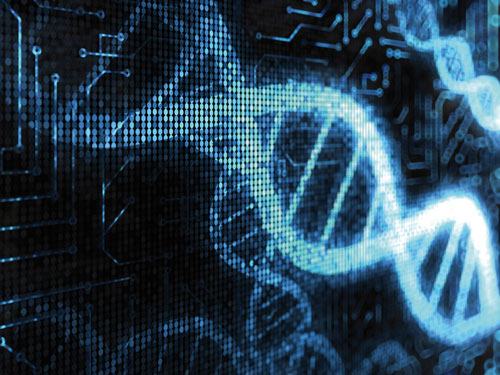
Genomics England and medical imaging company Sectra announced that they completed the deployment of Sectra enterprise imaging system to manage radiology and pathology imaging from a number of National Health Service (NHS) trusts. The system will now enable Genomics England to combine their whole-genome sequencing data with digital pathology and radiology data to provide, what the organization is calling the largest multimodal cancer research program in the world.
Incorporating the imaging data at Genomics England will allow oncology researchers to tap more robust data across the cancer care spectrum with the aim of developing new insights and better understanding of the disease and potentially improve clinical care. The Sectra Image Exchange Portal is already used by the NHS across its system and the implementation will now allow the sharing of images with Genomics England.
The result will allow radiology and pathology images generated via the NHS to be linked with whole-genome sequencing data generated by Genomics England.
“This program will push the boundaries of cancer research and how we work. It has the potential to transform clinical trials, change who can do research and development, and lead to the creation of new targeted treatments for cancer patients,” said Prabhu Arumugam, PhD, director of clinical data and imaging, and Caldicott Guardian for Genomics England in a press release. “The potential is vast. We will be able to understand mutations and when things go wrong in DNA, and importantly, whether that transpires into what clinicians see in medical imaging. We can also expose data to AI in new ways.
“The resulting multimodal dataset will enable important research and support a safe and secure but accessible cloud-based research environment. That means many more people than bioinformaticians will be able to harness genomic, pathology and radiology data.”
The program will initially work with 30 of the 219 NHS trusts that are providing data on solid tumors, which comprises roughly 250,000 pathology images and 200,000 radiology scans, for 16,000 participants. These data will then be matched with patient genomic data that can be used to gain insights of biomarkers for cancer that may be leveraged for the development of diagnostics and targeted treatments.
The data for the program will be housed in a secure environment, deidentified, with outside researchers only provided with access to a Genomics England ID number, patient age, and the name of the NHS site where the data was collected. The data and the data solution are deployed in the Genomics England cloud environment which will allow the program to be scaled as more users access the data for research and as the program eyes expanding research capabilities to encompass a range of diseases beyond cancer.
“This is an inspirational initiative that could help to change our understanding of cancers and other illnesses. We have been working with the NHS for decades to deliver digital maturity to diagnostic environments including radiology and pathology. This project makes greater use of that work, with exciting possibilities for research that could be immense. I eagerly look forward to seeing research emerge, and from that the potential for life-changing and life-saving treatments for patients,” noted Jane Rendall, managing director of Sectra U.K. and Ireland.













